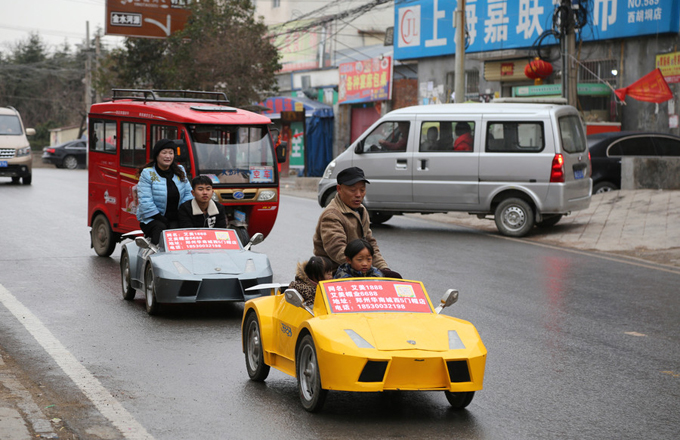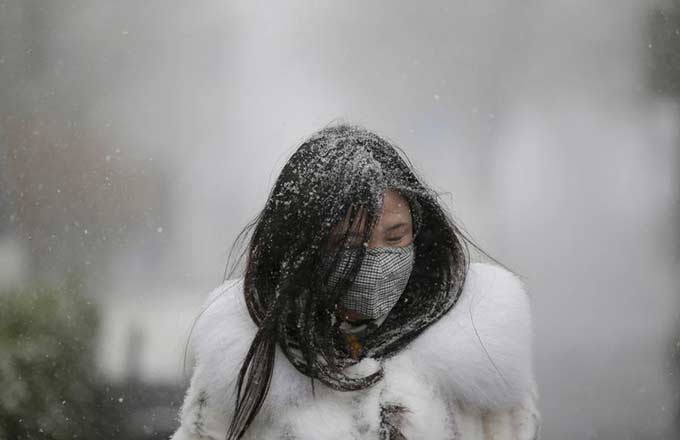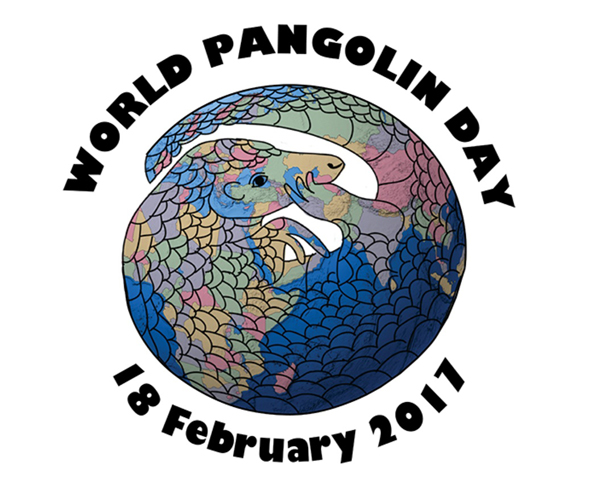Environmental reins tightened on companies
More inspections ensure governments implement measures to control pollution
China will put stricter reins on governments and companies, including conducting at least one more large-scale inspection and suspending production in more industries, in a bid to achieve its targets for air pollution control this year.
Inspectors involved in the ongoing monthlong review have uncovered another 137 problems involving insufficient government implementation of emergency response and excessive discharging of pollutants by companies, according to a statement by the Ministry of Environmental Protection on Wednesday.
For example, Jinan, capital of Shandong province, despite more than 900 companies having been found to be discharging airborne pollutants, suspended production of only 73 of them.
That would cut the emission of pollutants by only 20 percent, far from enough to control air pollution, the ministry added.
The ongoing monthlong inspection, headed by Minister of Environmental Protection Chen Jining and four deputy ministers, has exposed massive violations by governments and companies in Beijing, Tianjin and the provinces of Hebei, Henan, Shandong and Shanxi since it was launched on Feb 15.
"The ministry will conduct one or two additional rounds of specific inspections on air pollution controls like the ongoing ones this year," said Zhao Yingmin, vice-minister of environmental protection.
The monthlong inspection could facilitate the authorities in their implementation of control efforts, one of the major measures to cut air pollution this year, the ministry said.
According to the national Action Plan on Air Pollution Control and Prevention, Beijing and Tianjin need to lower their concentration levels of PM2.5 - hazardous particulate matter with a diameter of 2.5 microns or less - to an average of 60 micrograms per cubic meter this year. Hebei province has a target of 67.
However, it will not be an easy task to reach the targets.
In January, northern regions experienced deteriorating air quality, with average PM2.5 concentrations in 13 cities in the Beijing-Tianjin-Hebei region soaring to 128 micrograms per cubic meter, an increase of 43.8 percent compared with December, said Liu Zhiquan, head of the ministry's environment monitoring department.
In addition, Beijing saw average PM2.5 readings of 116 in January, up 70.6 percent compared with December, the ministry said.
Zhao said that the soaring concentrations are closely related to increasing industrial production, larger coal consumption for heating in rural areas and weather patterns that did not help to disperse pollutants.
"It also shows that the efforts to control air pollution in winter were not as effective as expected, so the ministry will strengthen those efforts," he said.
In addition to more inspections, the ministry also issued tougher restrictions targeting polluting industries, coal consumption and vehicle exhaust emissions the northern regions.
Half of the steel production in Shijiazhuang and Tangshan of Hebei, and Anyang of Henan province, was suspended for the Nov 15 to March 15 heating season, which covers more cities than the existing restrictions conducted last year, Zhao said.
The production restrictions will extend to more polluting industries like electrolytic aluminum and chemical plants, and 28 major cities in the region will be banned from using coal this year, the ministry said.
zhengjinran@chinadaily.com.cn



















